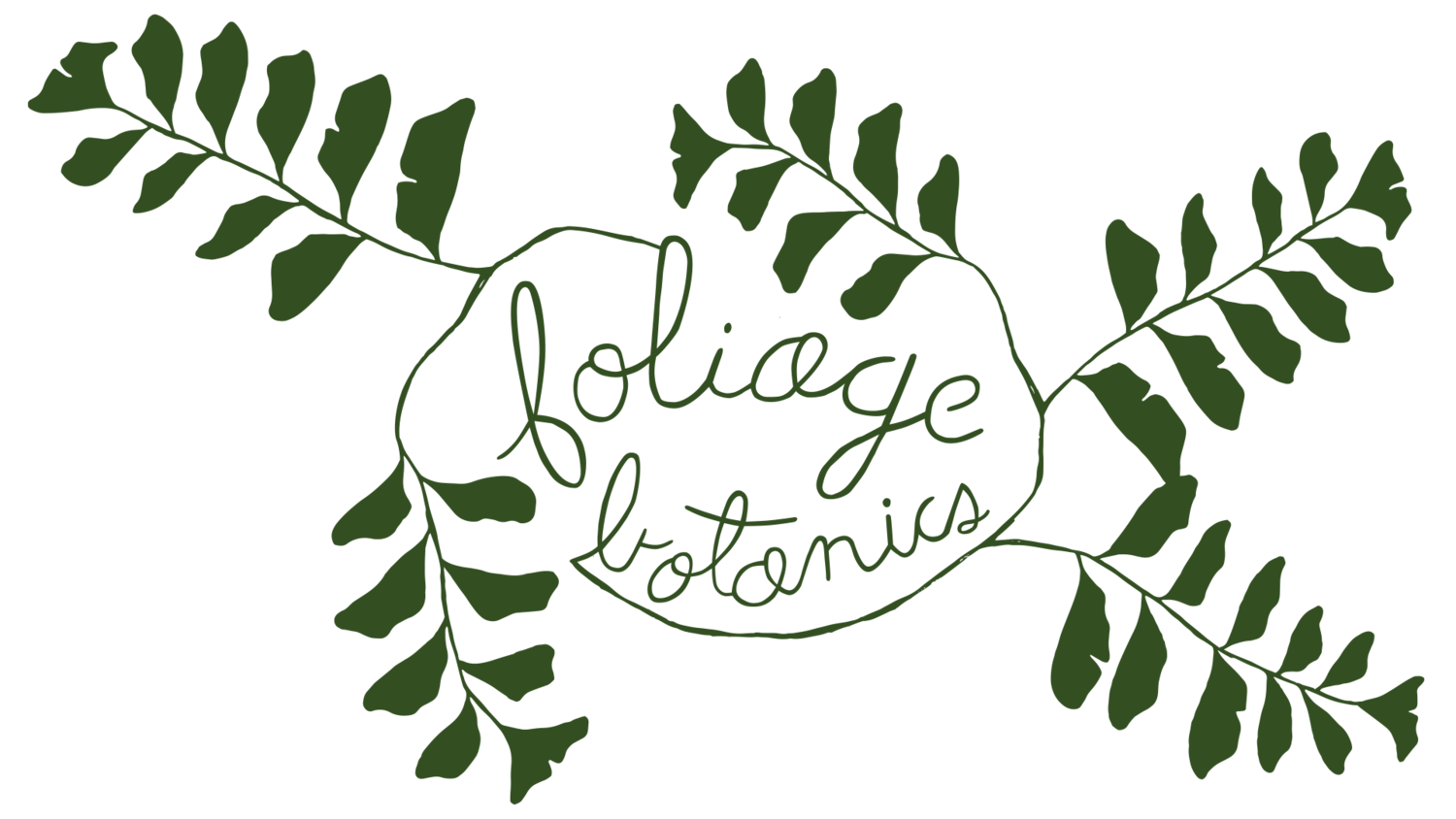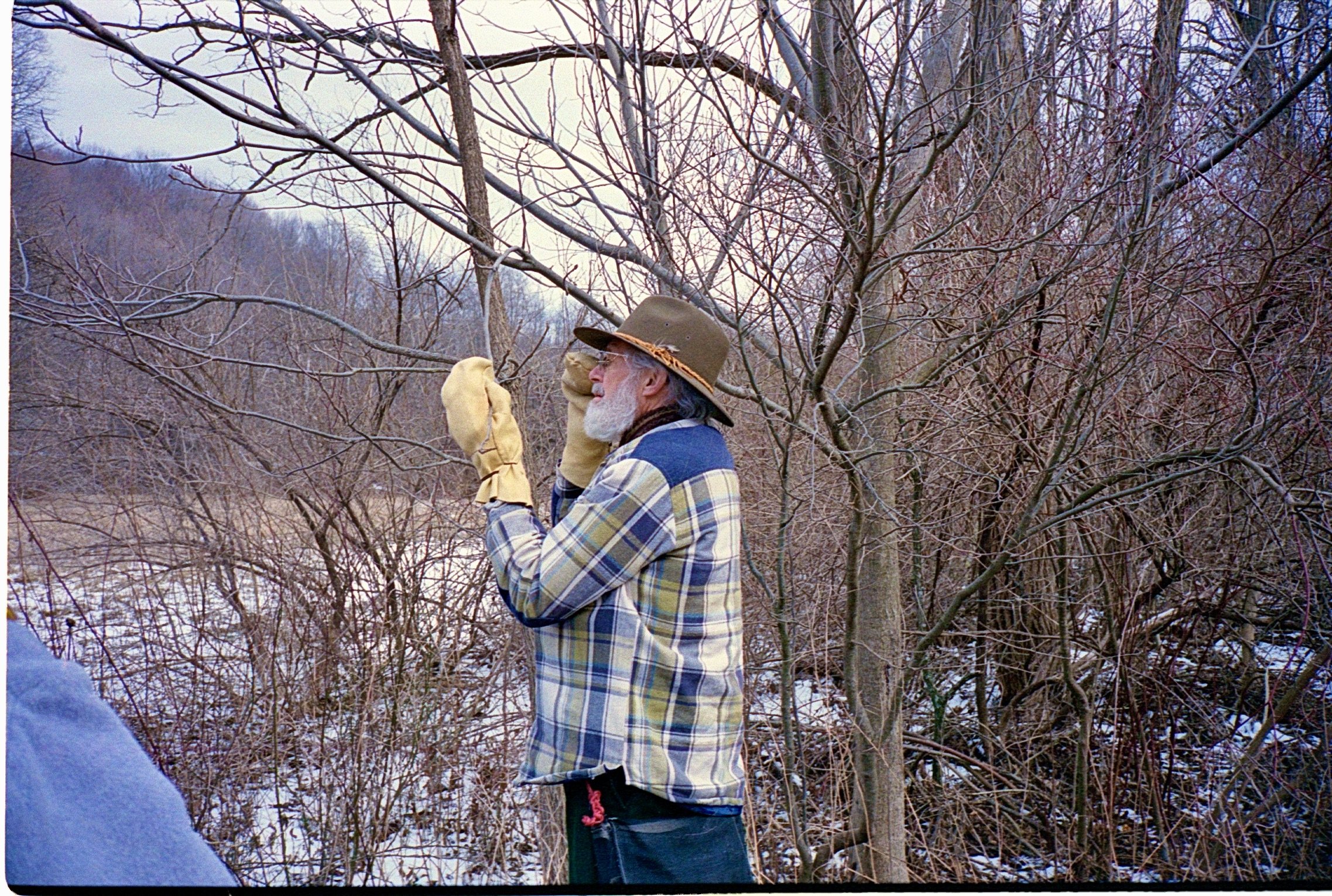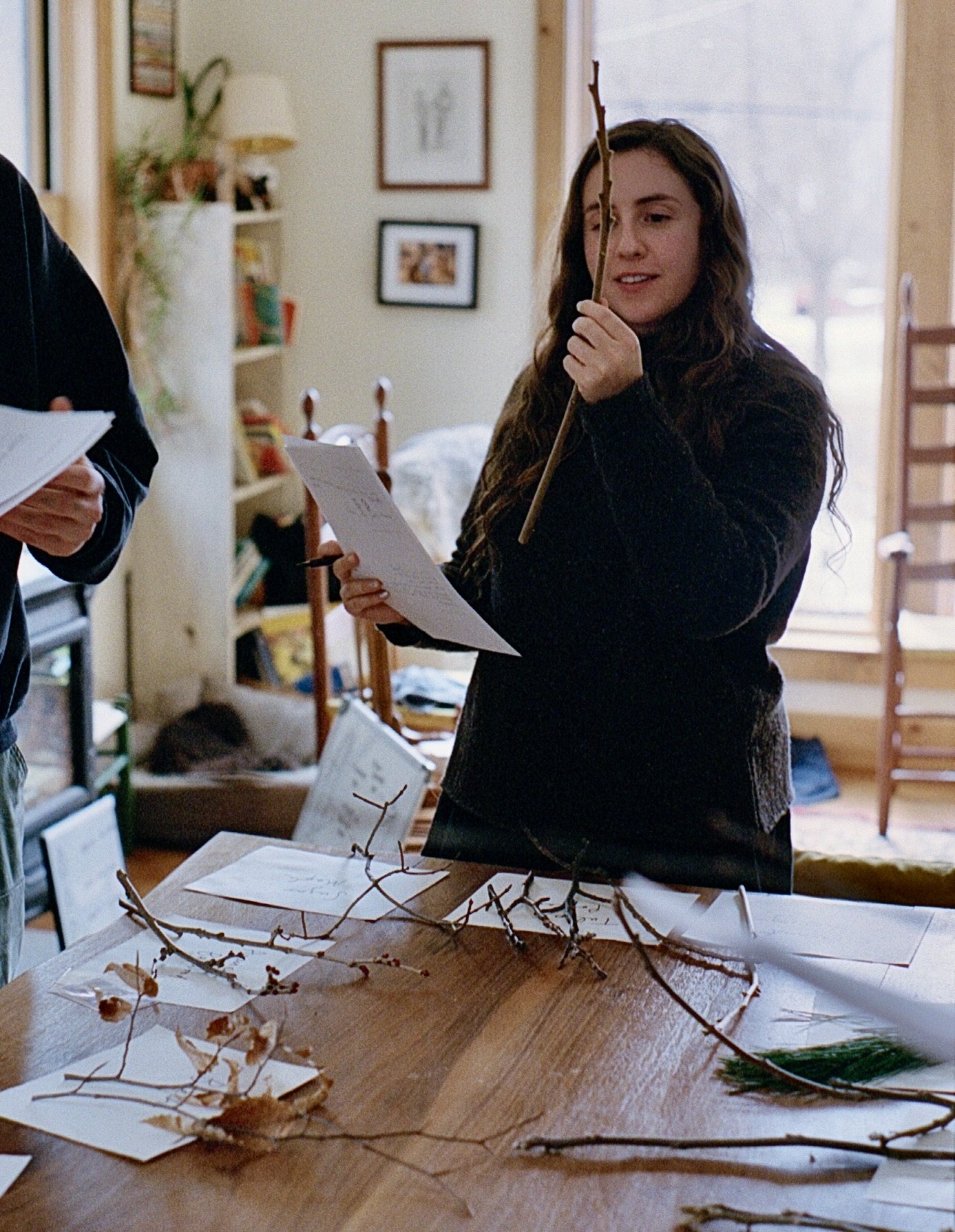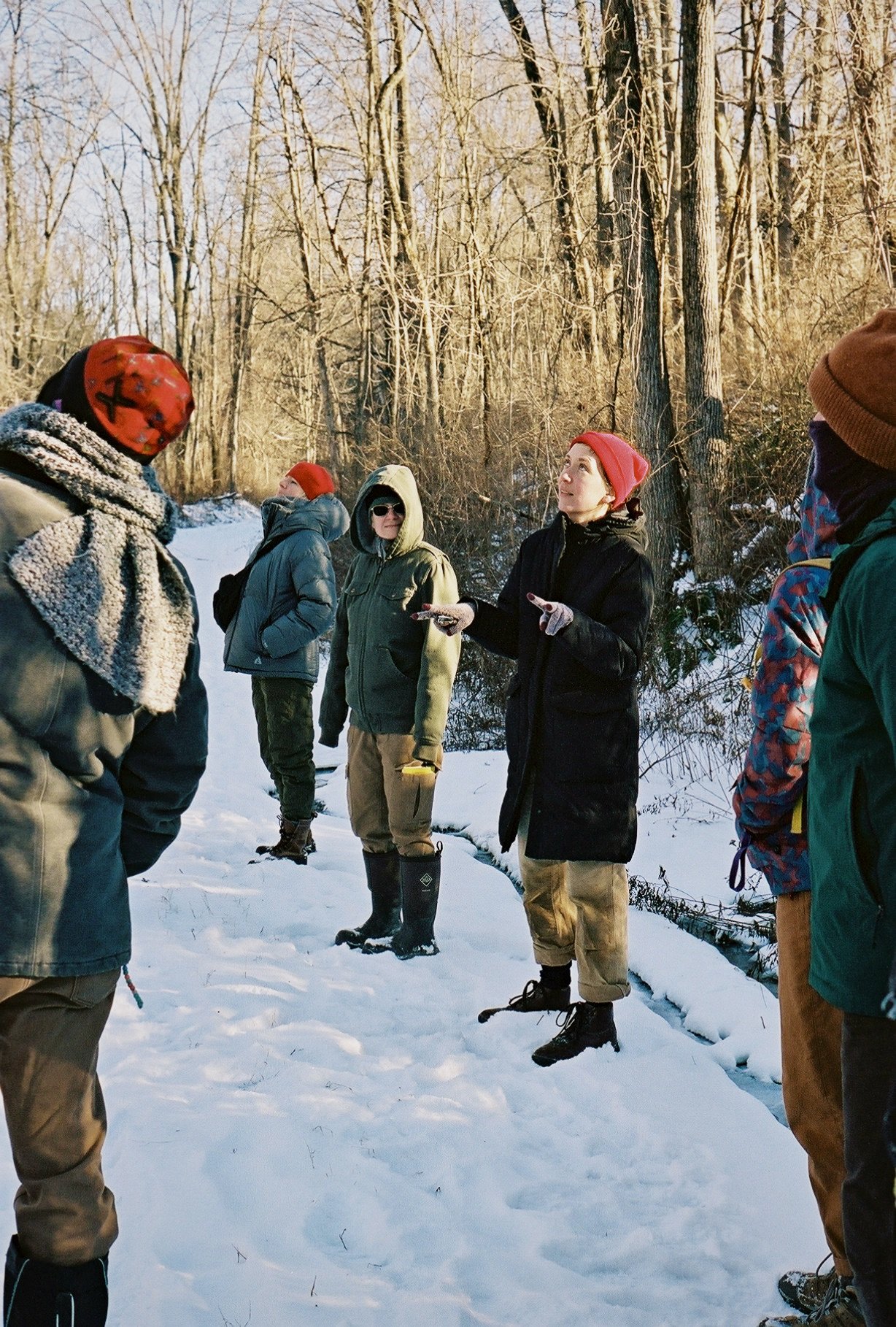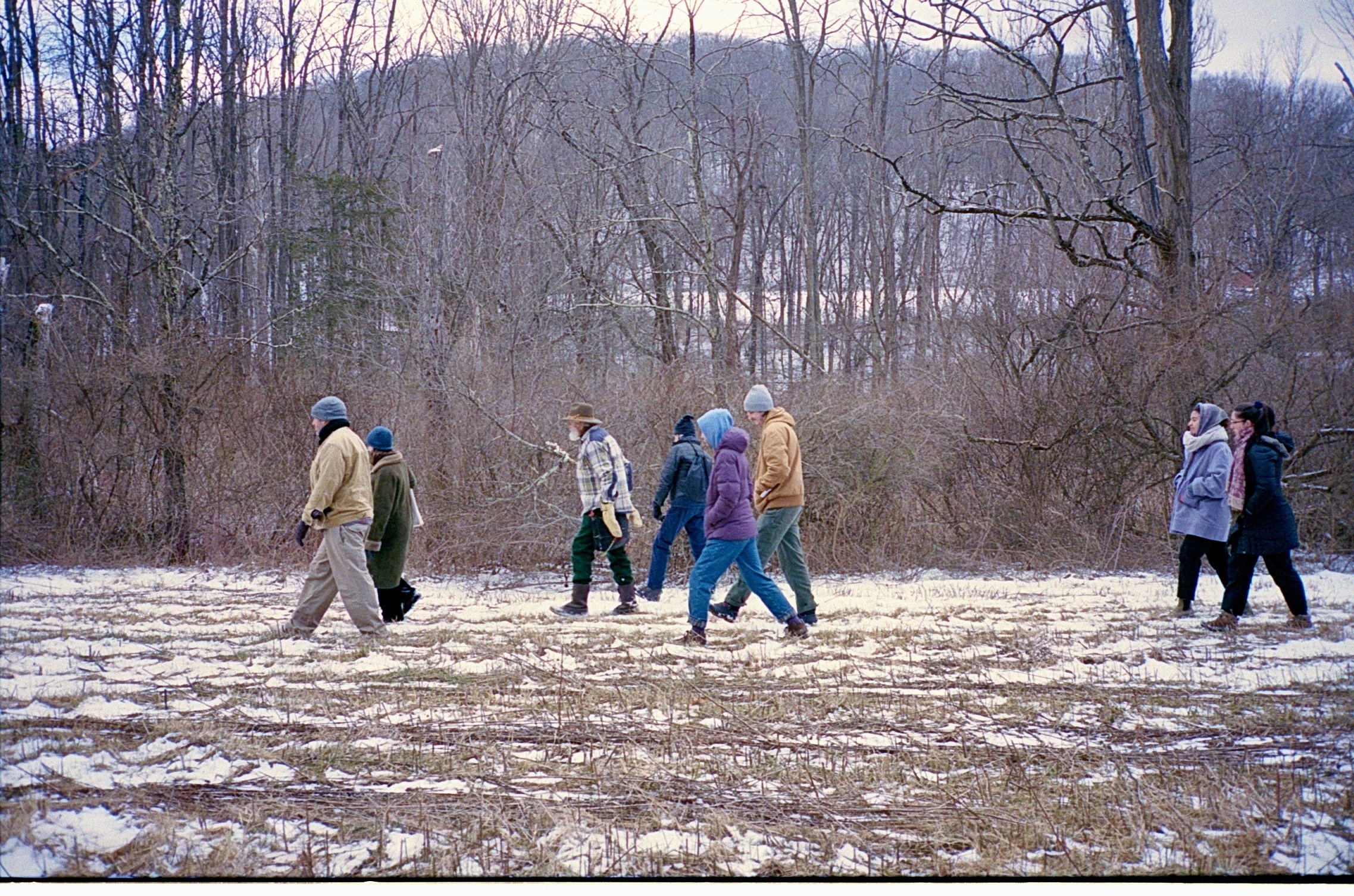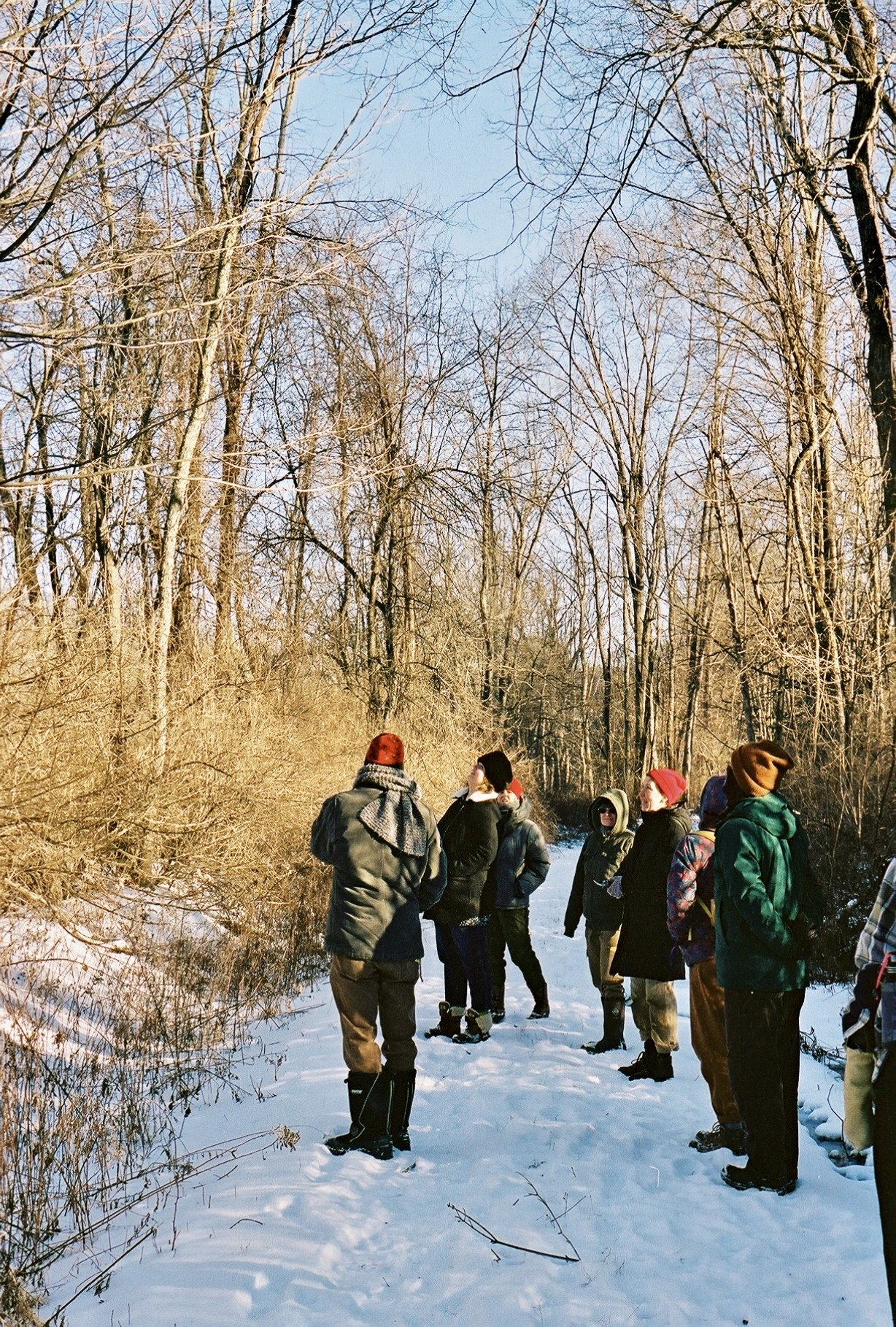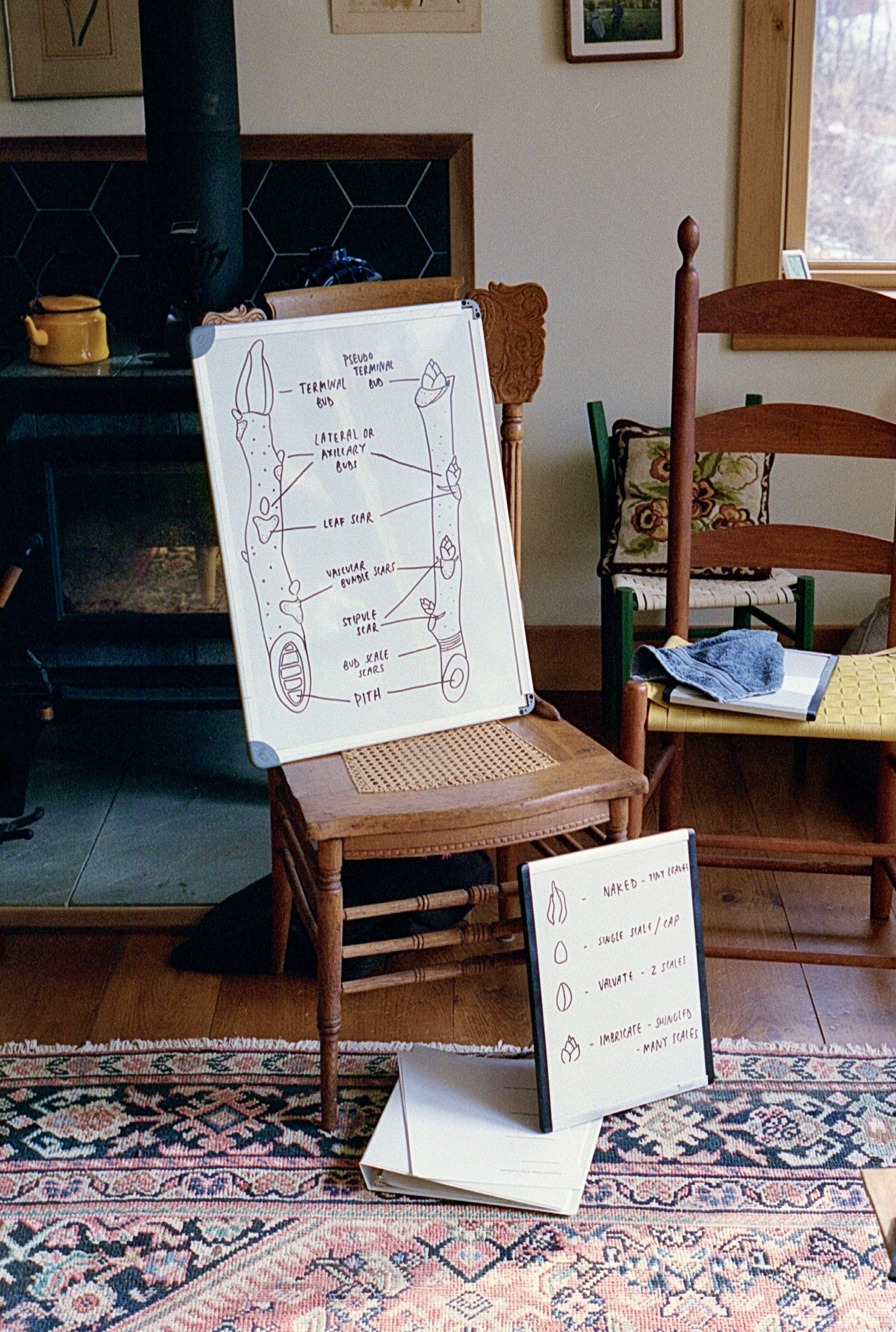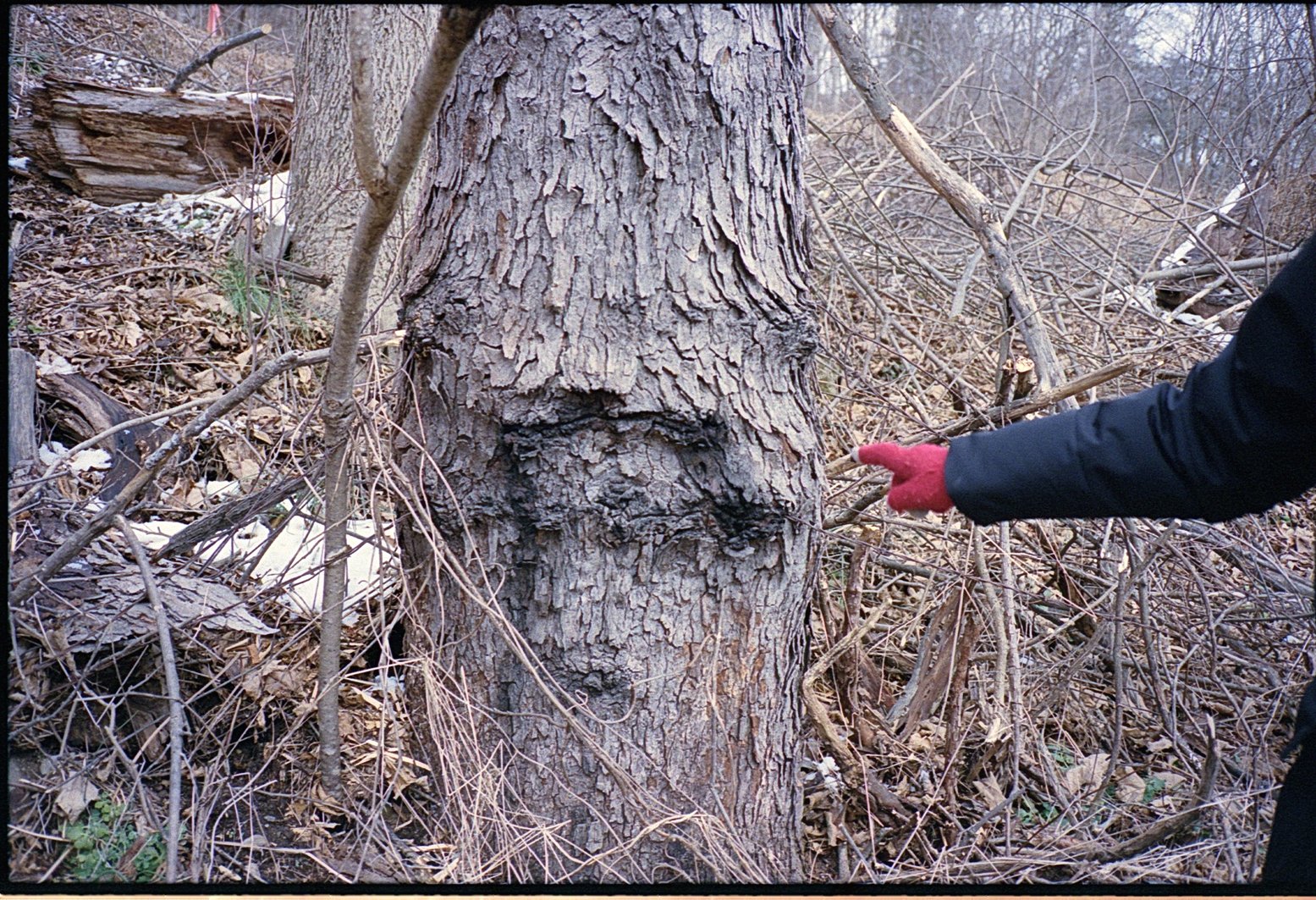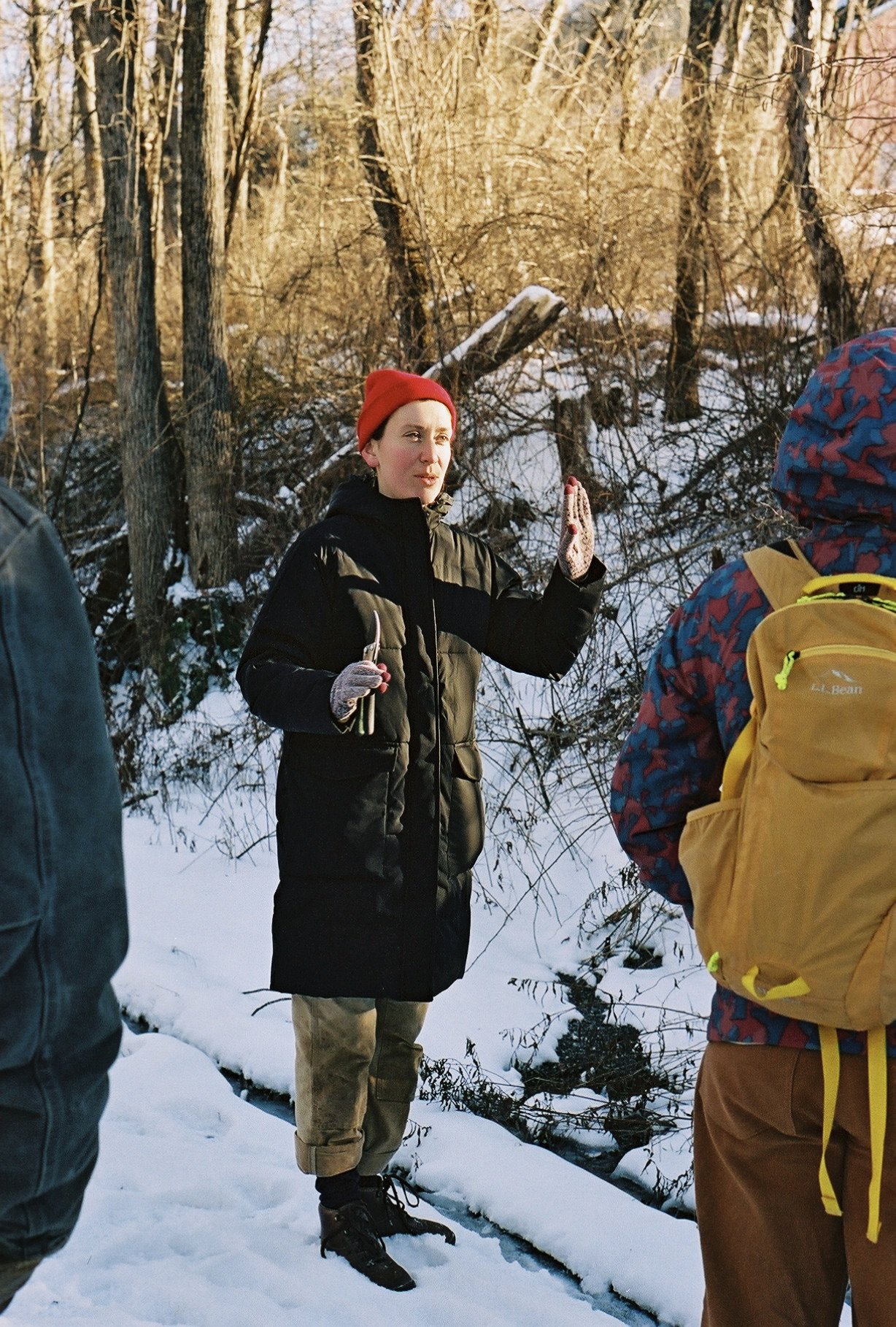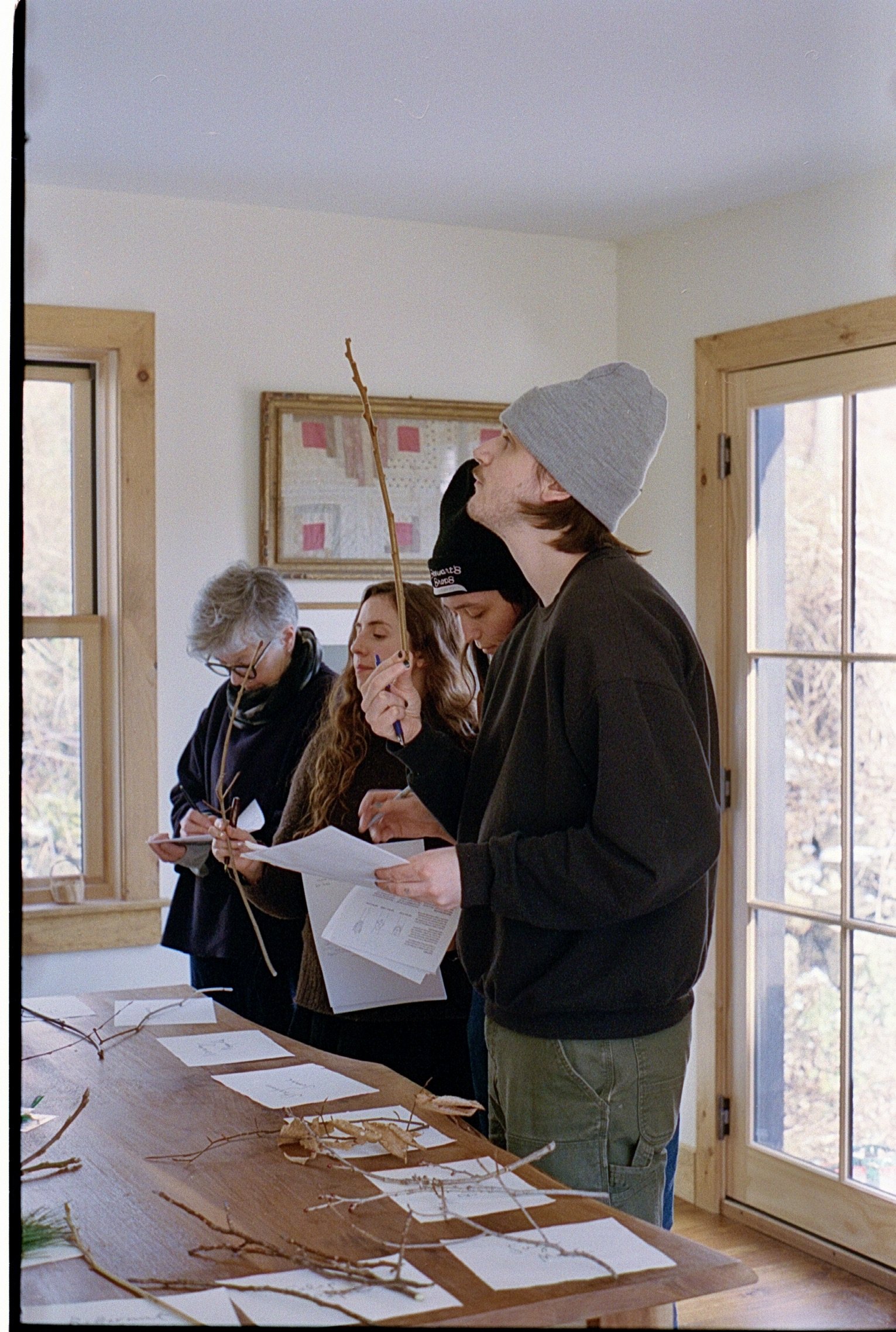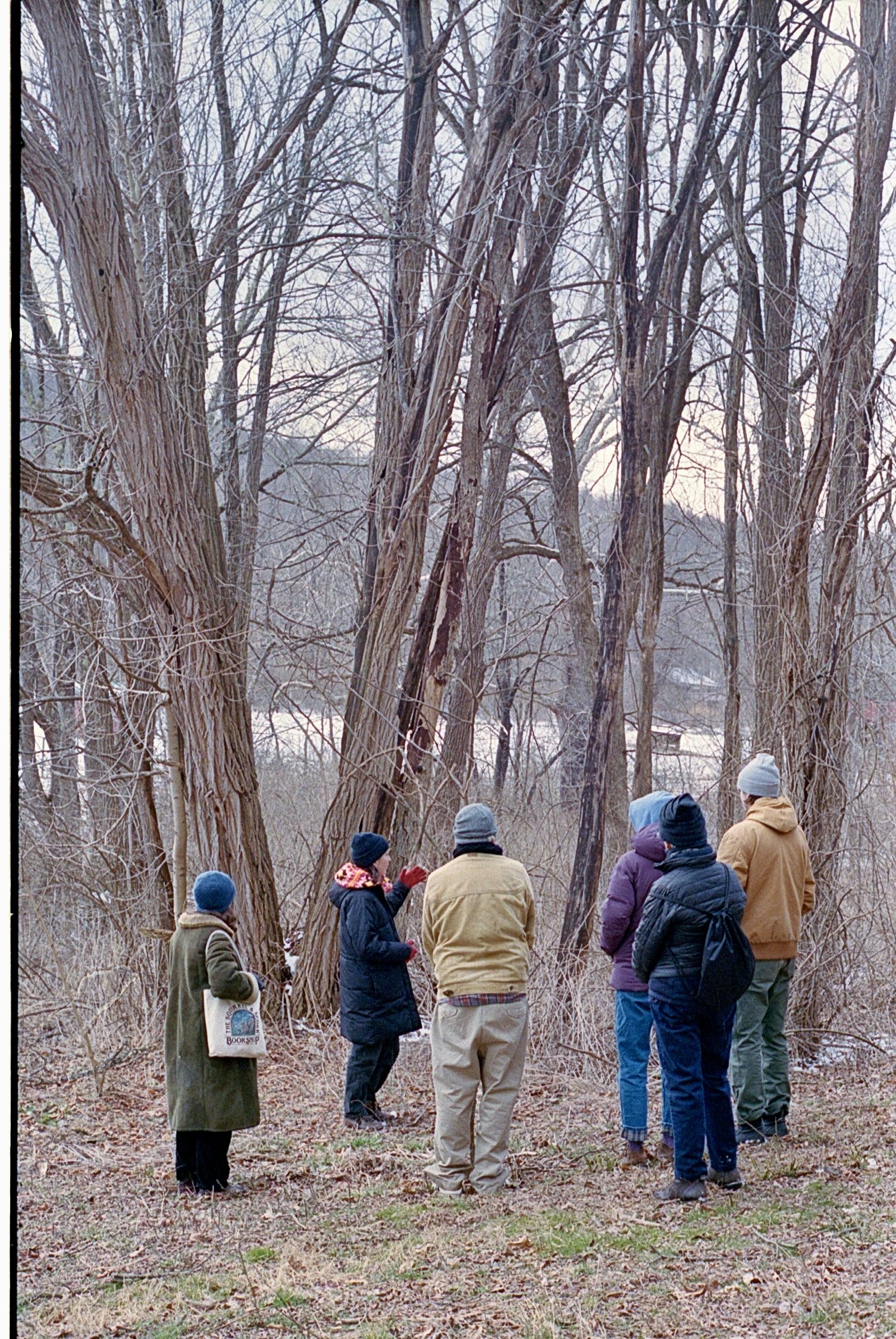Winter Botany Intensive
Get outdoors in plant-focused community this winter and come learn how to identify plants! In this intensive, you’ll learn practical applied tools for identifying all the plants that persist during winter dormancy, AKA our woody plant community! Upstate New York has a vast and rich array of trees and shrubs and vines to explore during the winter months, the time when it’s actually easiest to see all the many components that enable us to more confidently identify them. I want to give you the know-how to do just this!
This class meets 4 times throughout deep winter. Each class, weather permitting, will be part indoor & part outdoor. We’ll gather in the classroom first (my home), drink tea together, and learn concepts and ID tips and tricks, go over terminology, explore books, etc. Then we’ll head out into the field and start applying everything we’ve learned to the plants outside. We’ll meet a whole host of our native tree, shrub, and vine species and learn their varied identifying features and I PROMISE you will leave each day more confident in your botany skills, building a strong base for botanizing in the growing season ahead and for many years to come.
There are 4 sessions in total. Each session focuses on one of the 3 Bs of Winter Tree ID—Branches, Buds, & Bark—my own personal model for learning to identify woody plants. This year we will also be adding and starting with a P—for Pods, in which we’ll investigate the seed pods left behind by our herbaceous flowering plants, nuts, fruits/berries, even old leaves—all the hangers-on and left-behinds that provide extra information to clue us into what we are seeing as we shift from late fall into Winter.
We’ll start with P in December and meet once a month until March. In January we focus on Branches, February is for Buds, and March is for Bark. This class meets on the farm where FB lives, in Pine Plains, NY.
Dates 2024-2025; all dates are Sundays from 12-3 pm EST
12/8, 1/12, 2/9, 3/16
In case of horrible weather-rain-snow, we may choose to reschedule; the “rain date” for each class will be the following Sunday each month: 12/15, 1/19, 2/16, 3/23
Cost
The price of the Winter Botany Intensive is $260. Though in the past I offered this program piecemeal, this year I am asking everyone to sign up for and commit to the program in full as the curriculum builds on itself and this serves to create a better container for the group. If you have to miss a class, that’s ok! But it is best to clear your schedule as much as you can so that you can attend as many sessions as possible, this way you will get the most out of your investment and our time together.
Payment plans are available for this program with both 3 & 6 month options—please keep in mind that this is a vehicle for accessibility to support lower income/less financially secure folks in attending the program, so please only select it if you otherwise could not attend the program. Once you commit to a payment plan, you are required to continue your payments & pay for the program in full, regardless of classes missed. There are no refunds for payment plans or full tuition.
BIPOC scholarships and Accessibility rates are also available. Please read our Accessibility & Sliding Scale page in full for details. If you are in need of financial assistance, you may access a 20% discount using the code WBI20 at checkout, which will also apply to the payment plan options. For greater financial assistance & no cost spots, please reach out via email to foliagebotanics@gmail.com
Please read our refund policy, liability & media release statements, + general class agreements before registering for this program
Why learn to identify plants?
I ponder this question often, especially as a teacher of botany and herbal medicine, especially in a day and age when AI and other software tools make it easy to bypass botanical knowledge and self-identification steps. For me, I believe the intimacy that develops between person and plant when we take the time to more curiously observe, witness and question is a huge part of why this process is important. When we develop intimacy in such a way, we understand more deeply and the value we attribute to the natural world grows. It’s harder to clearcut a forest of individuals we have come to know throughout the seasons with names and roles and lives and children. It is harder to say “who cares about the trees?”
In Robin Wall Kimmerer’s speech “The Teachings of Grass,” she talks about the importance of learning to identify plants. She shares the alarming statistic that the average American can name over 100 corporate logos and only 10 plants. “Is it a surprise that we have accepted a political system that grants personhood to corporations,” she declares, “and no status at all for wild rice and redwoods? Learning the names of animals and plants is a powerful act of support for them. When we learn their names and gifts it opens the door to reciprocity.” When we care enough to get to know the land and plants in this way, she explains, we move away from seeing the earth as “a source of belongings” and shift into seeing it, once again, through the indigenous lens, as a source of belonging. To me, this is everything. Plant identification is powerful and political work of great substance that ripples out far beyond the here and now.
I often tell my students that learning to identify plants makes you a better person. I think it’s sort of the same way coaches believe this for their athletes in sports, or ballet teachers or whomever in other fields that require dedication and devotion. But I do really believe this, that developing relationship or, rather, kinship with plants is a roadmap to goodness. As you engage more deeply with the plant kingdom it’s hard to not witness and want to replicate the intrinsic systems within it of mutual care. The forest, the field, is more than just a chaotic jumble of disparate plants, but an ancient community founded on connection and collaboration and when we learn to see the inividuals and what they do, we become a part of it all alongside them and that, that can only be good.
